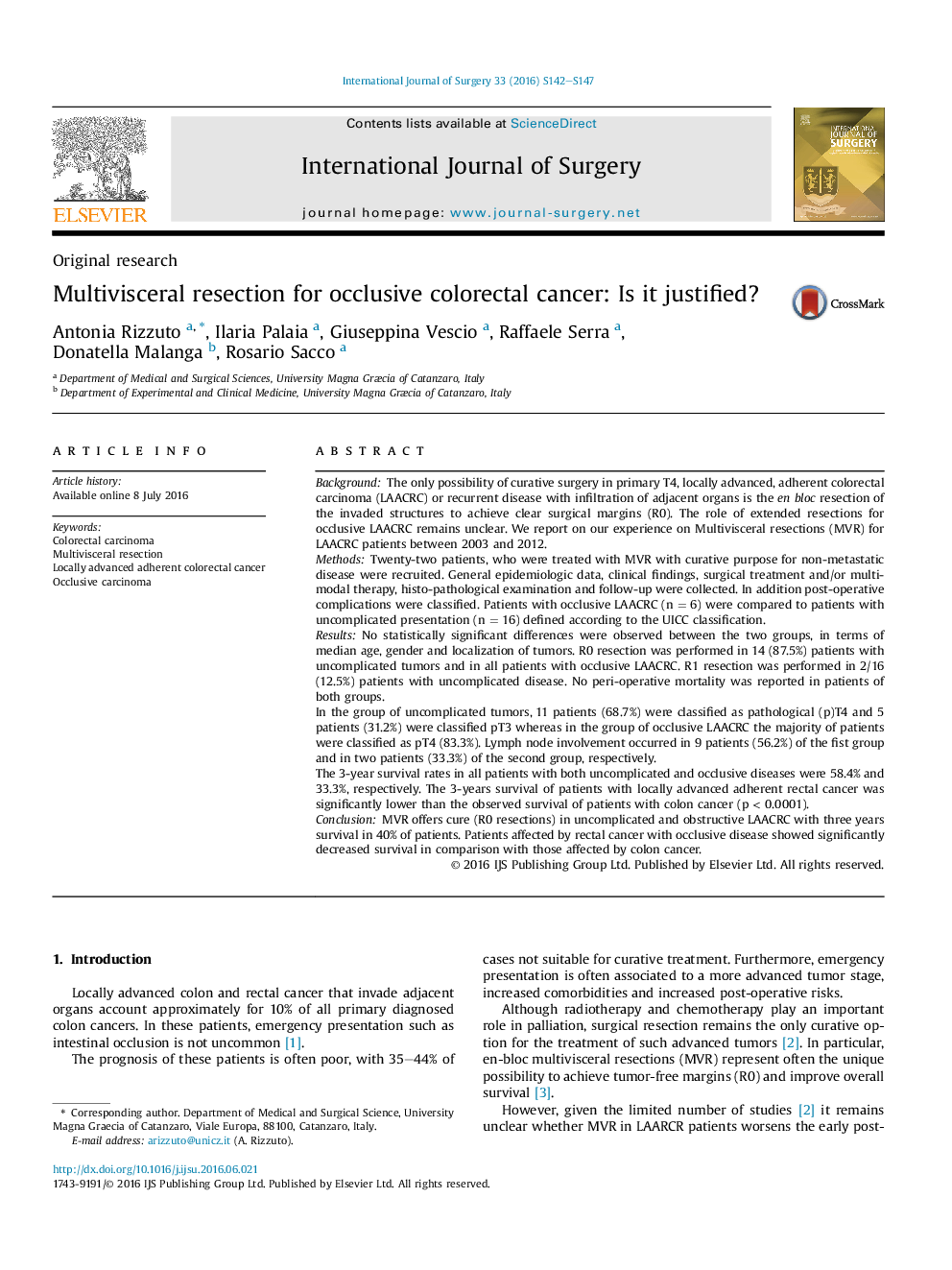| Article ID | Journal | Published Year | Pages | File Type |
|---|---|---|---|---|
| 4285381 | International Journal of Surgery | 2016 | 6 Pages |
BackgroundThe only possibility of curative surgery in primary T4, locally advanced, adherent colorectal carcinoma (LAACRC) or recurrent disease with infiltration of adjacent organs is the en bloc resection of the invaded structures to achieve clear surgical margins (R0). The role of extended resections for occlusive LAACRC remains unclear. We report on our experience on Multivisceral resections (MVR) for LAACRC patients between 2003 and 2012.MethodsTwenty-two patients, who were treated with MVR with curative purpose for non-metastatic disease were recruited. General epidemiologic data, clinical findings, surgical treatment and/or multimodal therapy, histo-pathological examination and follow-up were collected. In addition post-operative complications were classified. Patients with occlusive LAACRC (n = 6) were compared to patients with uncomplicated presentation (n = 16) defined according to the UICC classification.ResultsNo statistically significant differences were observed between the two groups, in terms of median age, gender and localization of tumors. R0 resection was performed in 14 (87.5%) patients with uncomplicated tumors and in all patients with occlusive LAACRC. R1 resection was performed in 2/16 (12.5%) patients with uncomplicated disease. No peri-operative mortality was reported in patients of both groups.In the group of uncomplicated tumors, 11 patients (68.7%) were classified as pathological (p)T4 and 5 patients (31.2%) were classified pT3 whereas in the group of occlusive LAACRC the majority of patients were classified as pT4 (83.3%). Lymph node involvement occurred in 9 patients (56.2%) of the fist group and in two patients (33.3%) of the second group, respectively.The 3-year survival rates in all patients with both uncomplicated and occlusive diseases were 58.4% and 33.3%, respectively. The 3-years survival of patients with locally advanced adherent rectal cancer was significantly lower than the observed survival of patients with colon cancer (p < 0.0001).ConclusionMVR offers cure (R0 resections) in uncomplicated and obstructive LAACRC with three years survival in 40% of patients. Patients affected by rectal cancer with occlusive disease showed significantly decreased survival in comparison with those affected by colon cancer.
